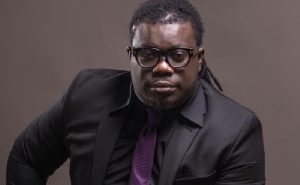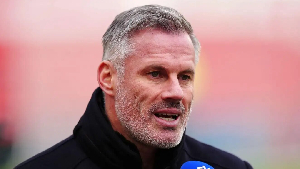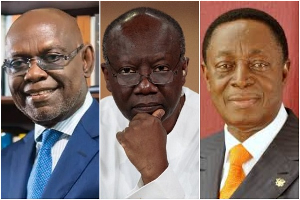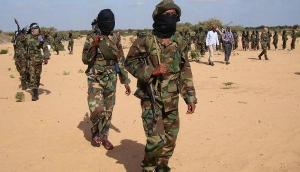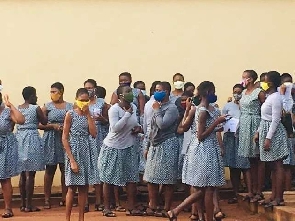The Norwegian cement company, SCANCEM, in the 1990s paid tens of millions of dollars to various African top leaders and politicians through anonymous bank accounts in Luxembourg and Switzerland.
These leaders took the bundles of dollar notes in envelopes to Africa.
According to an investigative report published on April 21 and 22, 2007 by Geir Imset and Harald Vanvik, Ghana/Oslo, in the Det Norske Magazine.
Sas Braathen’s admittance to an industrial sabotage towards a Norwegian company’s interest in court room No1 attracted much attention outside Asker and Baerum courthouse.
A little after 10 O’clock, a well-known industrialist together with his co-workers walked in through the main entrance, passed by the press and continued over the terrazzo-decorated terracotta flisene in the justice hall No8.
One of them was a General from Lillehamer-Olympic Committee and an Associated International Committee member, Gerhard Heiberg. He was at the court to witness a case about secret bank accounts in Luxembourg and Switzerland and bundles of envelopes filled with dollar notes paid to top African politicians.
It was a big organized bribery in all the countries involved, explained Heiberg, when he mounted the stand as a witness. The countries, in West Africa, were Ghana, Togo and Nigeria.
Those who allegedly paid the bribes to the countries were the Norwegian cement company, SCANCEM. But Heiberg’s witnessing should have been made a secret to the few who were present in the court room Number 8, in Sandvika outside Oslo.
Klinkers Fra Norge, a Norwegian company, started cement production in Africa as earlier as the 1960s. Cheap sea transport made it very lucrative to transport the sakalte klinkers, a kind of local material in the form of particles, with a container ship from the cement factories in Norway to West Africa where it was then processed into cement by NORCEMS, latter to be known as SCANCEM.
Factories in Ghana, after a while, decided to build a chain of factories along the west coast, through Togo to Nigeria. SCANCEM took monopoly of the cement production for so many years in Ghana that Norwegians stood straight in strengthening Norwegian cement expansion on the African continent.
One of the leaders was Garhard Heiberg, 67, the NORCEM company boss from 1972, who later became the company director and chairman of the Board of Directors in Aker NORCEM. Heiberg was, for many years, the general consultant for the little African country, Togo, in Norway.
The other person involved was Tor Egil Kjelsaas, 69, general consultant for Ghana, NORCEM Ghana’s boss from 1969 and regional boss for Africa.
Kjelsaas was later nicknamed Mr. Africa among his associates and he was the one accused by his employers last year of pocketing 25 million krongr of the company’s (SCANCEM) money.
The money was bribe. In 1963, the first elected Togolese president was killed in a bloody military coup. It was repeated four years later with a new coup d’etat that brought Gnasingbe Eyadema to power as the sole president of that former French colony. A position he held for 38 years till he died two years ago.
In Nigeria, the pattern was the same as there was a military coup in 1966. Thereafter, a civil war and a new bloody and less bloody coups to be followed up in the decade.
One of that country’s strongmen was and still is General Theophilus Danjuma, a former head of the army and a Defense Minister, and today, a multi-millionaire and a successful businessman.
In Ghana, the young republic’s fundamental development was interrupted by a coup d’etat in 1966. Nine years after independence, in 1979, a group of young officers and other ranks revolted in a popular revolution.
In 1981, emerged one of them again by name Jerry John Rawlings, who would later on become the longest surviving president for almost 20 years (from 1981 to 2001).
Togo, Nigeria and Ghana have the same conditions like other west African countries were SCAMCEM had built factories. These countries have repeatedly been criticized for their bad economic policies, human rights violations, and corruption among other things.
The darling presidents Gnasingbe’ Eyadema, Jerry John Rawlings in Ghana and Defence Minister Theophilus Danjuma in Nigeria were some of the personalities SCANCEM had dealings or best connections with.
Mr Vice President: Airport residential area, Accra, Monday 27 March 1995. This Monday evening, SCAMCEM’s top boss in Ghana, Tor Nygaard, a Norwegian, had invited some guests for dinner in his exclusive and spacious residence at Arku Korsah Road around the Airport Residential area, at the outskirts of Ghana’s capital, Accra.
This area was decorated with well-trimmed gardens, palm trees, Kapok, Mahogni, OG evergreen beautiful trees, providing good canopy shade.
They had agreed to lay the bribery case behind them. We paid the politicians, party members, port authorities. But together with Administrative Director, Paul A. Rabl in SCAMCEM and the company’s Africa boss, Tor Egil Kjelsaas were Nygaard Bertskap for the representative Gensidge, Director Harald Elgaaen, another vital Director, Peter Hermanrud and Administrative Director in the social security fund, Tore Lindholt.
They were all invited by the Norwegian Aker, who at that time owned fifty per cent of SCAMCEM. The reason was simple: Gjensidige, Vital and FOLICETRYGDFONDET had something in common. The were all stakeholders and owned shares in Aker.
The Board of Directors in Akgil were worried about the interest rates back in Norway and wanted to clarify the value of shares or holdings that AKER Kontrous, among others, in West Africa.
It was an opportunity for the representatives of the shareholders to confer with SCAMCEM together with their Ghanaian counterparts over a meal time.
There were impressions at the dinner table. One of the prominent African guest present was Ghana’s vice president, Mr Paul Victor Obeng. The other guest presented was a minister in president Jerry John Rawlings’ government.
Mr Paul Victor Obeng, otherwise P.V. as he is called, was in reality not a Vice President nor a Minister of State as the Ghanaian press at that time described him. His actual position was a special adviser to the then President Rawlings.
But SCANCEM all the same had their way through. Obeng was practically the number two man in President Rawlings political power hierarchy.
Members of the Ghanaian government also prioritised a private dinner with three Norwegian AKER shareholders. Their discussions were centred on SCAMCEM’s interest in Ghana.
But how had SCAMCEM achieved this position with SCANCEM’s sister company, GHACEM with cement production in cities like Tema and Takoradi was not a useless venture to the Ghanaian economy or industries. in providing GHACEM’s meant labour and wages to the inhabitants and also taxes to the government?
But all the same in judgement room no 8 in Asker and Baerum courthouse, more than ten years later, formulated the former Ghana boss, TOR Nygaard, the story as such in his testimony in the witness box. It is better to let the bribery case be as it is.
We paid the politicians, the party and port authorities through Switzerland and Luxembourg; in SCANCEM’s accounts department lay documents that speak for themselves.
In the middle of the 1990s, there were two anonymous bank accounts in Unibank SA in Luxembourg and Barclays SA in Geneva in Switzerland which were earmarked ‘Ghana’, and substantial amount was being paid in dollars to the said accounts from SCANCEM’s headquarters in Oslo.
From 1993 to 1998, a total of 1,690.000 dollars (approximately 12 million Norwegian Kroner) was paid to the Barclays accounts. In the same way was 2.460.00 dollars or (17 million Kroan) transferred to the Unibank accounts.
This was presented by an internal SCAMCEM report. The transfers from Oslo to both accounts indicated Ghana Klinker Export.
Who were recipients? SCAMCEM’s leadership believe that the monies paid into the Barclay account, went to President John Jerry Rawlings’ wife, Nana Rawlings and that of Unibank went to Vice President Paul Victor Obeng.
General News of Thursday, 26 July 2007
Source: Daily Guide
Daily Guide: JJ Bribe Case - What The Magazine Said
Entertainment
